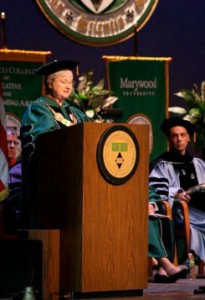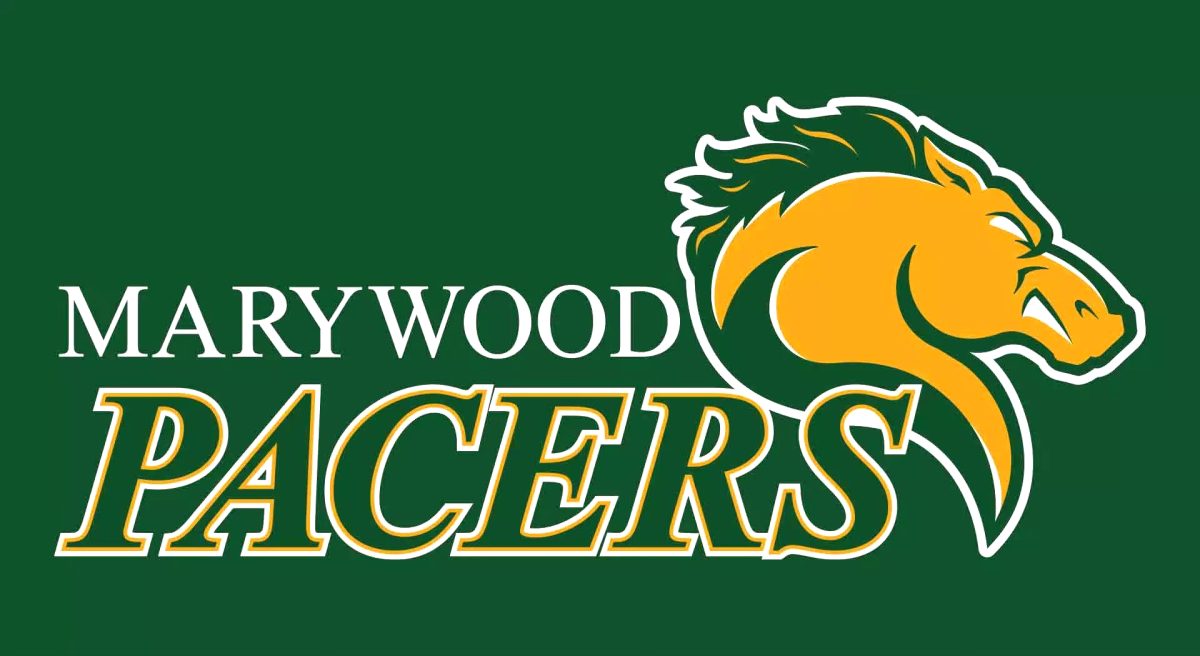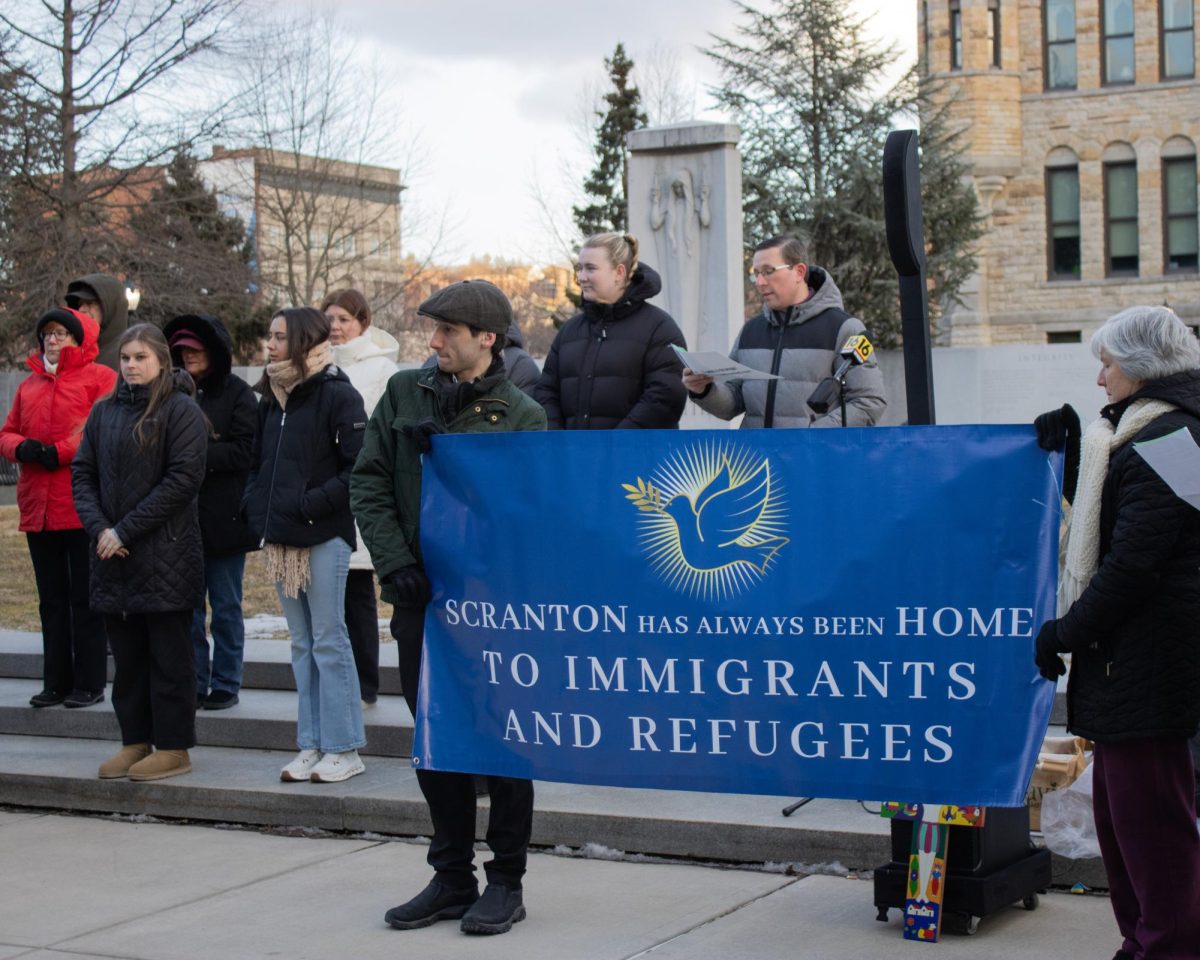
Danielle Walker
Staff Writer
Honky by Dalton Conley had been the required reading for the University 100 Courses two years in a row. The student’s positive response to the book from last year influenced the reading of this year’s University 100 required reading assignment. This year’s Fall Convocation was tied into the University 100 course with the invitation of the author Dalton Conley.
The purpose of Fall Convocation is to open up the school year, have the opportunity to present a part of Marywood to the students, have a speaker who will engage them, and to present faculty awards. These awards acknowledge faculty who have performed well within their discipline and craft. “We encourage excellence in the classroom,” states Dr. Foley, Dean of the College of Liberal Arts and Sciences. Convocation is a way to display those efforts of encouragement, and shows students that Marywood University values quality, teaching, and scholarship. Within this effort Dr. Conley challenges social justice issues of the discrimination and differences between race and class within American society. Many of the Values that Dr. Conley presented at Convocation are some of the core values that Marywood upholds strongly as a University.
In University 100 classes students are taught the transitioning skills that will benefit academic excellence within their college careers. This course introduces the nature of the University which they attend, and understand the core values in which the institution is built upon. Respect for each other and empowerment are two of the “core” values Marywood takes pride in, and those were two values that Dr. Conley referred to when talking about diversity and change.
“Honky and Conley were good for us at this moment,” says Dr. Foley. Dr. Conley understood his privilege of choice that many of his peers did not have, and his life was an experiment. His life situations were individual variables in his daily experiment as a “honky” in the predominantly African American and Puerto Rican community. In his housing projects he was the minority, but he grasped on to the knowledge of having choice. He was taught color, and that made him realize and experience the power of certain races and class status. He told the story of him wanting a baby sister so badly that he stole someone else’s daughter. She was African American and had braids. He paid little attention to the baby’s ethnic background but just to the fact that she was a baby girl. His point was that the distinction between color or race is a learned behavior, and society and our environment shapes those ideas and learned behaviors as we grow older and try to understand the world around us.
The author recounted the time that he believed was his ultimate lesson of race and class. He was playing a game with a friend, “fire man water man.” He and his friend set their karate facility and part of a house on fire. The response of the authorities around him was that “these were good kids that did something stupid,” says Dr. Conley. He said that he was “99.44% sure that things wouldn’t have happened so easily if it wasn’t for his race and his friends upper-middle class status.” Had the situation occurred elsewhere, possibly in his housing tenements, he may have faced harder repercussions for his actions.
He compared how driving routes and streets being chosen for you is the same as being born in a certain race and class, they are chosen for you. Similar to Marywood’s beliefs and Values, Dr. Conley ends with “respect the dignity and diversity of all.” We should think positive, be open to diversity and what it has to offer. This is an important element to our growth as a leader and student within this community and body of people. We are taught to be open and understanding to diversity, whether it be race, class, religion, etc.
Even with Dr. Conley’s numerous noteworthy accomplishments he was humble in his actions and responding to our invitation. This year’s fall convocation was insightful as well as encouraging. Dr. Conley’s memoir was unique and innovative. It shed light on a controversial issue that occurs within our society, and as a part of Marywood we challenge these issues and respect diversity.
The merging of the University 100 required reading and Fall Convocation was a different experience, and it emphasized the importance of the University 100 course. Dr. Foley said “a subtitle for the course would be: A Gateway to the Humanities.” As we make the transition from high school to college or from college to the “real world” we learn to stay connected to our foundation and what we learn, achieve and grow from.
As we gave Dr. Conley a token of our appreciation, he was given memories of his grandmother’s ties and roots to Marywood University. The things that we experience everyday in some way shapes our lives. We all have our own memoir, a story that we can tell. The experiences help us learn and grow, and the connection that we establish now can affect others. As we grow and empower others we allow them to do the same.










